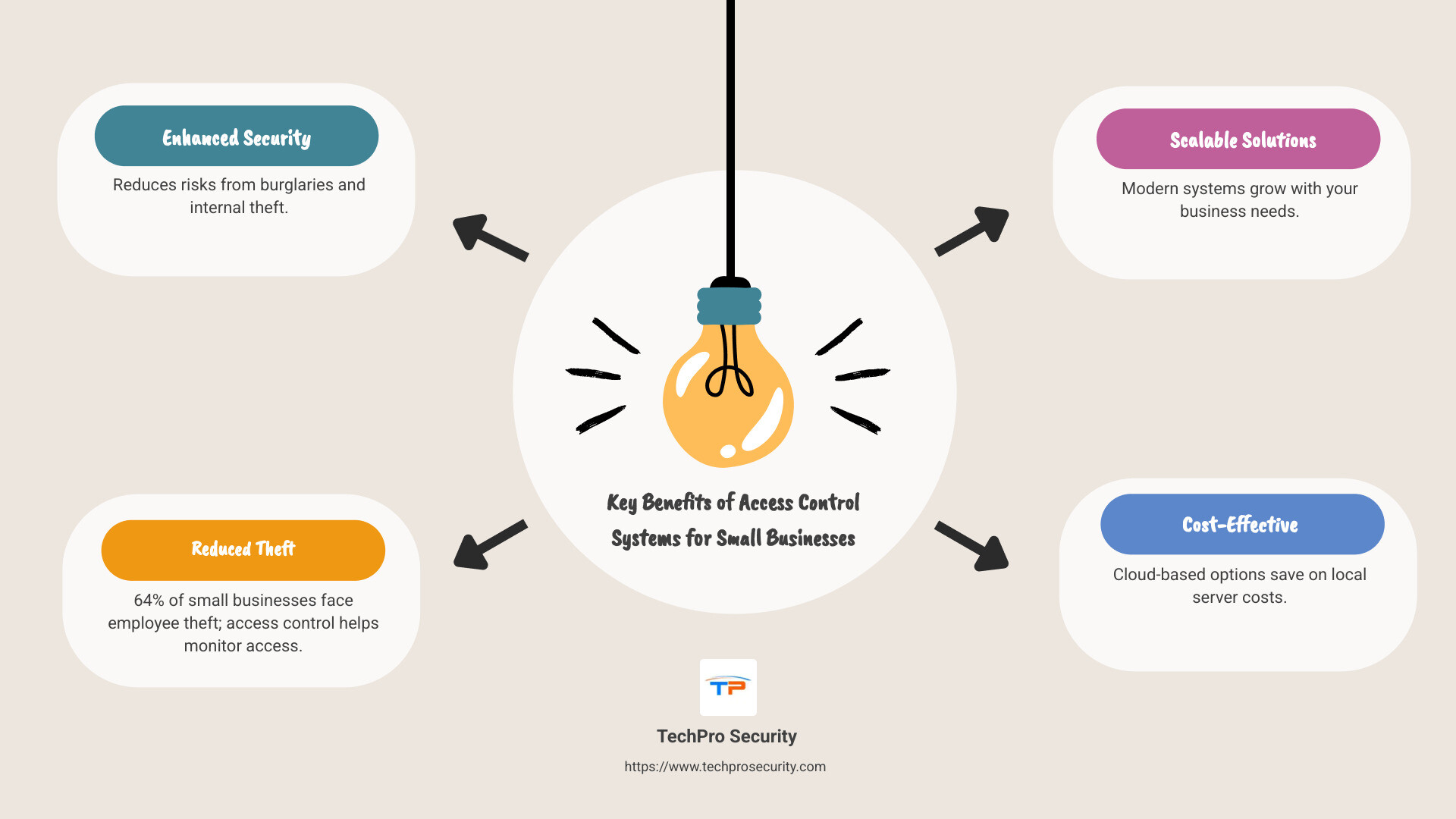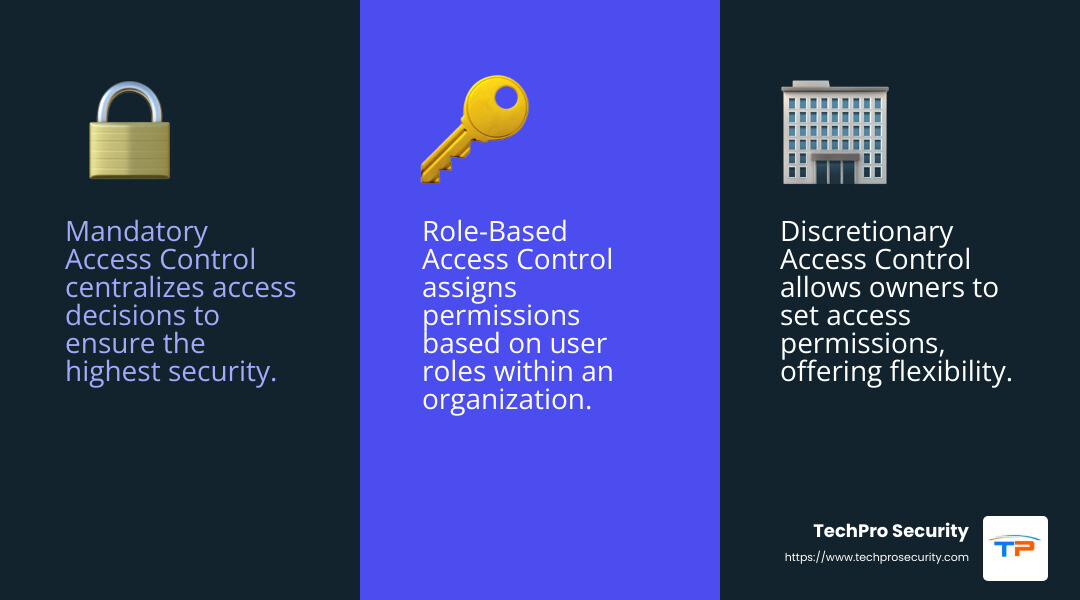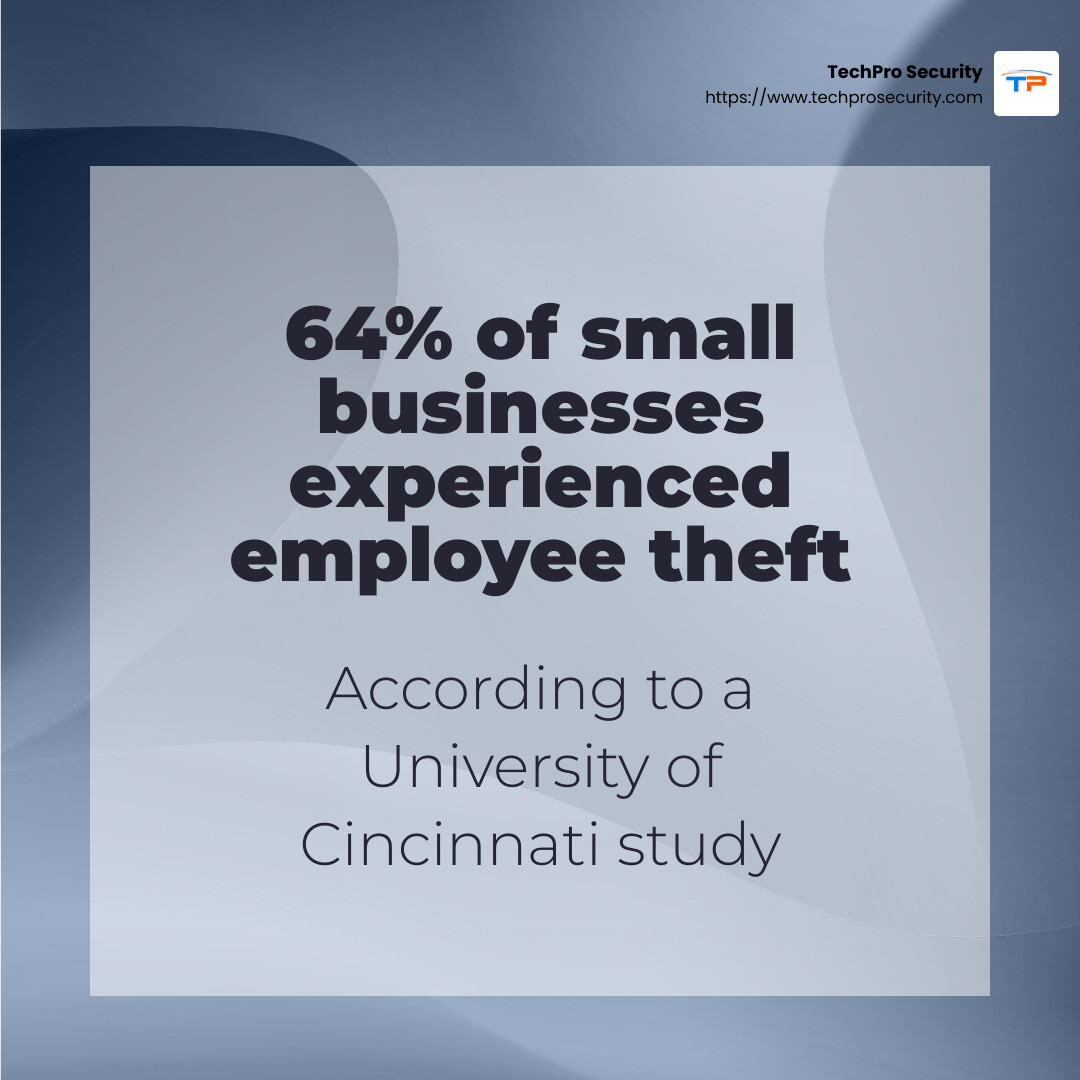Access Control Systems for Small Business: Top 5 Success
Access control systems for small business are critical in today’s world, especially given the unique challenges small business owners face. Here’s why they’re essential:
- Improved Security: Small businesses are often targeted by burglars and internal theft. Implementing an access control system can reduce these risks.
- Reduced Theft: With 64% of small businesses experiencing employee theft (as per the University of Cincinnati study), access control can help monitor and restrict access.
- Scalable Solutions: Modern systems, like those from Avigilon, are scalable and easy to expand as business needs grow.
- Cost-Effective: Cloud-based options eliminate the need for local servers, saving on upfront costs.
Access control systems aren’t just technical gadgets; they represent a robust solution to protect your business assets from unauthorized access and theft. With features like scalability and cost-effectiveness, they can fit various business sizes and needs.
I’m Brad Besner, a seasoned security professional and the founder of TechPro Security Products, LLC. My passion and expertise lie in helping small businesses safeguard their operations through advanced access control systems for small business.

Understanding Access Control Systems
Access control systems are crucial for managing who can enter different areas of a business. They are essential for protecting assets and ensuring the safety of employees. Let’s explore the three main types of access control systems: mandatory access control (MAC), discretionary access control (DAC), and role-based access control (RBAC).
Mandatory Access Control (MAC)
Mandatory Access Control is the most secure and restrictive form of access control. It is typically used in environments that demand high security, such as government and military facilities. In this system, a central authority sets strict policies on who can access certain areas. Users cannot change permissions, ensuring a high level of security.

Discretionary Access Control (DAC)
Discretionary Access Control is more flexible compared to MAC. Here, the owner or administrator of the resource decides who can access it. This system is often seen in businesses where multiple administrators need to grant access permissions. While it offers flexibility, it may not be as secure as MAC due to the potential for human error in setting permissions.
Role-Based Access Control (RBAC)
Role-Based Access Control assigns permissions based on the user’s role within the organization. This method is popular in businesses of all sizes due to its balance of security and flexibility. For example, an employee in the finance department might have access to financial records but not to the IT server room. RBAC simplifies the management of permissions as roles can be easily adjusted without altering individual permissions.
Access control systems for small business can adopt any of these models, depending on their security needs. For small enterprises, RBAC is often ideal as it offers an efficient way to manage access without the complexity of MAC or the potential vulnerabilities of DAC.
Understanding these types of access control systems helps businesses choose the right solution to protect their assets and ensure smooth operations.
Access Control Systems for Small Business
For small businesses, choosing the right access control system can make all the difference in security and efficiency. Let’s explore some of the most effective solutions available today.
Key Fobs and Key Cards
Key fobs and key cards are popular choices for small businesses. They are easy to use and manage. Each employee gets a unique fob or card, allowing them to access specific areas. When someone leaves the company, you simply deactivate their fob or card. This eliminates the hassle and cost of changing locks.
Keypads
Keypads offer another straightforward option. Employees enter a code to gain access. However, there’s a risk of code-sharing, which can lead to unauthorized access. Regularly changing codes and educating employees about security can help mitigate this risk.
Cloud-Based Access
Cloud-based access control systems provide flexibility and scalability. They allow business owners to manage access from anywhere using an internet-enabled device. This system is perfect for businesses with multiple locations or those planning to expand. The cloud-based model also ensures automatic updates and security patches, keeping your system up-to-date.
Mobile Access
With mobile access, employees use their smartphones to enter secure areas. This method is gaining popularity because of its convenience and improved security. Mobile access eliminates the risk of lost or stolen key cards and can be managed remotely via an app. Plus, you can easily grant temporary access to visitors or contractors.
Video Intercoms
Video intercoms add an extra layer of security by allowing you to see and communicate with visitors before granting access. This is particularly useful for businesses with a high volume of deliveries or visitors, such as retail stores or offices. Video intercoms can be integrated with other access control systems for a comprehensive security solution.

By leveraging these access control systems, small businesses can improve security, streamline operations, and safeguard their assets. It’s important to assess your specific needs and choose a solution that aligns with your business goals.
Top Access Control Methods for Small Enterprises
For small businesses, selecting the right access control method is crucial for both security and operational efficiency. Here are some of the most effective methods custom for small enterprises:
Key Fobs and Key Cards
Key fobs and key cards are a staple in access control for small businesses. They are simple to distribute and manage. Each employee receives a unique fob or card, which can be deactivated instantly if lost or when an employee leaves. This eliminates the need for changing locks, saving both time and money.
Keypads
Keypads offer a straightforward and cost-effective solution. Employees enter a code to gain access to different areas. However, the risk of code-sharing exists, which can lead to unauthorized access. To counter this, codes should be changed regularly, and employees should be educated on security protocols.
Cloud-Based Systems
Cloud-based access control systems provide best flexibility and scalability. These systems enable business owners to manage access remotely via any internet-connected device. Ideal for businesses with plans to expand or those with multiple sites, cloud-based systems also benefit from automatic updates and security improvements, ensuring your system remains current and secure.
Mobile Access Control
With mobile access control, employees use their smartphones to open up secure areas. This method is becoming increasingly popular due to its convenience and heightened security measures. Mobile access eliminates the risks associated with lost or stolen key cards, and access can be managed remotely through an app. Temporary access for visitors or contractors is also easily managed with this system.
Video Intercoms
Video intercoms offer an additional layer of security by allowing businesses to see and speak with visitors before granting access. This feature is especially beneficial for businesses with frequent deliveries or numerous visitors, such as retail stores or office complexes. Video intercoms can be seamlessly integrated with other access control systems to create a comprehensive security solution.
By adopting these access control systems for small business, enterprises can significantly improve their security measures, simplify management tasks, and protect valuable assets. It’s vital to evaluate your specific needs and choose a solution that aligns with your business objectives.
Benefits of Access Control Systems for Small Businesses
Implementing access control systems for small businesses offers several key benefits that can improve security and streamline operations.
Improved Security
Access control systems significantly boost security by ensuring only authorized individuals can enter specific areas. This reduces the risk of theft and unauthorized access. According to a University of Cincinnati study, 64% of small businesses reported employee theft, often involving long-term schemes. By controlling who can enter different parts of your business, you minimize these risks and protect your assets.
Permissions-Based Access
With permissions-based access, administrators can easily control who has access to different areas of the business. This means you can quickly grant or revoke access as employees join or leave the company. It ensures that sensitive areas are only accessible to those who need to be there, adding an extra layer of protection for confidential information and valuable assets.
Simplified Management
Access control systems simplify management by automating many tasks that were traditionally handled manually. For example, with a cloud-based system, you can manage access remotely, lock or open up doors, and even receive notifications about access events via text or email. This allows you to focus on other critical business operations, knowing your security system is handling access management efficiently.
Visitor Management
Handling visitors and deliveries is easier with access control systems. Video intercoms enable you to see and communicate with visitors before granting access, which is particularly useful for businesses that frequently receive deliveries or have numerous visitors. This feature allows you to verify identities and ensure that only expected guests are allowed entry, keeping your premises secure.
By leveraging these benefits, small businesses can improve their security posture, simplify administrative tasks, and ensure that their facilities are accessible only to the right people. These systems not only protect physical assets but also contribute to a safer working environment for employees and visitors alike.
Frequently Asked Questions about Access Control Systems
What are the three types of access control?
Access control systems are essential for managing who can enter different areas of your business. There are three main types of access control:
-
Role-Based Access Control (RBAC): This system assigns access permissions based on the roles within an organization. For instance, managers might have access to more areas than regular staff. It’s efficient for businesses with well-defined roles and responsibilities.
-
Attribute-Based Access Control (ABAC): In this system, access is granted based on attributes like time of day, location, or user status. It’s flexible and can adapt to various scenarios, making it suitable for businesses with dynamic needs.
-
Discretionary Access Control (DAC): Here, the business owner or manager decides who gets access to certain areas. It’s straightforward and gives the owner full control but can be less secure if not managed carefully.
How much does an access control system cost?
The cost of an access control system can vary widely based on several factors:
-
Cost Range: Basic systems start at around $500, while more advanced setups can reach several thousand dollars. The total cost depends on the complexity and size of your business.
-
Installation Factors: Costs can increase if your building needs modifications for the system, such as wiring or additional network points. Installation by professionals ensures the system is set up correctly and securely.
What is the simplest form of access control?
The simplest form of access control is the traditional lock and key system. It’s straightforward and inexpensive but lacks the flexibility and security features of modern systems.
Alternatively, access cards offer a simple yet effective electronic solution. They are easy to use and can be deactivated if lost, unlike physical keys, which require changing locks. Access cards are a popular choice for small businesses seeking an affordable and efficient way to control entry points.
These FAQs help clarify common questions about access control systems, guiding small business owners in making informed decisions about their security needs.
Conclusion
In today’s business environment, securing your assets and ensuring the safety of your employees is crucial. That’s where TechPro Security comes in. We specialize in providing custom solutions custom to the unique needs of each small enterprise. Whether you need a simple setup or a more complex system, our experienced team is ready to help.
Our reliable protection offerings include state-of-the-art access control systems designed to prevent unauthorized access and safeguard your business. With a focus on innovation and security, we ensure that your business is protected around the clock.
One of our standout features is our US-based support. We understand that issues can arise at any time, so we offer 24/7 emergency support to address any concerns promptly. Our team is dedicated to providing exceptional customer service, ensuring that you have peace of mind knowing we’re just a call away.
At TechPro Security, we believe that every business deserves top-notch security solutions without breaking the bank. Our extensive warranties and free support make our services both affordable and dependable.
Ready to take the next step in securing your business? Contact us today to learn more about how our access control systems can benefit your small enterprise. Let’s work together to protect what matters most to you.

